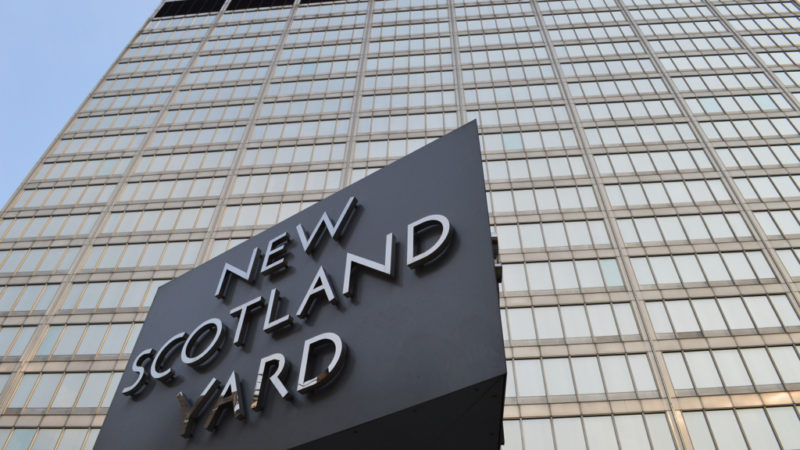Spycops have colluded in murder and sexual abuse.

How do we protect ourselves from terrorists, criminal gangs, human traffickers, arms smugglers and others, and at the same time protect and advance civil liberties?
This tension is at the heart of the Covert Human Intelligence Sources (Criminal Conduct) Bill (CHIS) currently going through the UK parliament and the government’s draconian measures should worry all law-abiding people.
The Bill authorises undercover agents to infiltrate groups and commit unlimited variety of criminal acts, with little public accountability. Clause 5 of the bill states that criminal conduct may be authorised if it is:
(a) in the interests of national security;
(b) for the purpose of preventing or detecting crime or of preventing disorder; or
(c) in the interests of the economic well-being of the United Kingdom.
Subject to limits, the police have always been able to undertake covert operations. The Intelligence Services Act 1994 and its predecessors have long authorised security services to commit criminal acts in the course of foreign operations.
However, CHIS authorises numerous agencies to commit criminal acts on British people. These include military, police, intelligence services, HMRC, Financial Conduct Authority, Serious Fraud Office, National Crime Agency, Food Standards Agency, Competition and Markets Authority, Environment Agency, Gambling Commission, Home Office, Department of Health and Social Care, Ministry of Justice and numerous other government departments and bodies.
The Bill does not impose limits on the variety of criminal conduct that might be authorised though the authorisation is expected to be necessary, proportionate and specific. Violent and sexual crimes can be authorised. The authorising officers need to conclude that the conduct is appropriate and necessary. Currently phone tapping or a property search requires a court warrant, but that would not be necessary under the Bill. No judicial approval is required for authorised criminal acts.
Undercover agents can be provided by private corporations, and can recruit women, children and vulnerable people to secure their objectives. There are few, if any, explicit constraints. We all remember female environmental and animal rights campaigners who in the late 1990s were deceived into sexual relationship by undercover policemen. They considered that relationship to be abusive and rape. The CHIS Bill will not enable women to bring any legal action against the policemen. Indeed, it is likely to prevent the current litigation from going forward.
In the late twentieth century, Northern Ireland was the site of an armed rebellion and many civilians died. Pat Finucane was murdered in 1989 by loyalist paramilitaries, with the complicity of security services. A report concluded that agents of the state were involved in carrying out serious violations of human rights up to and including murder. Former Prime Minister David Cameron acknowledged that there was ‘shocking state collusion’ in Finucane’s murder. His family are still awaiting a public inquiry and CHIS would prevent this altogether.
If CHIS results in a criminal prosecution, the affected party may be able to challenge the legality of an authorised criminal conduct, but as the above examples show it may take years. It presupposes that the state agencies would cooperate. The big change is that acts now considered to be criminal would cease to be so in the future.
The Bill introduces a total surveillance society where undercover agents can infiltrate homes, schools, universities, factories, offices, trade unions, political parties, civil society organisations and everything else. Their activities can lead to blacklisting of trade unionists, murder and exploitation of innocent people, but victims will have little/no protection or recourse against the authorities.
Almost all of our emancipatory rights come from the actions of small groups of conscientious people who argued that fulfilling lives can be lived differently. Faced with silence and exclusion, the suffragette movement had to resort to violence to secure voting rights for women. Trade unions, campaigners against nuclear weapons and environmental degradation; people seeking jobs, disability, gender and racial equality and numerous reformers had to go against the status-quo, but could now become the subject of authorised criminal acts by state agents. How would societies which conflate criminal acts with cries for social justice manage social tensions? Would they eventually implode?
Other societies face security threats too, but have a more calibrated approach. For example, the US and Canada have specific limits on the crimes their agents can commit. These include prohibition to commit murder, torture and sexual offences. The UK government has refused such prohibitions.
Tory government’s assurance is that the Human Rights Act 1998 would protect people’s rights, but it can’t be trusted. Its 2019 election manifesto said: “We will update the Human Rights Act and administrative law to ensure that there is a proper balance between the rights of individuals, our vital national security and effective government.
The warning signs on the road to fascism are flashing red. The CHIS Bill is the latest act of a right-wing government to disempower citizens and centralise power in an authoritarian state. We have already seen illegal closure of parliament, threats to judges, TV/radio stations and critical journalists, and curbs on the use of anti-capitalist literature in schools. The Internal Market Bill has shown contempt for international law and more will come.
Prem Sikka is a Professor of Accounting at the University of Sheffield and a Labour member of the House of Lords
Left Foot Forward doesn't have the backing of big business or billionaires. We rely on the kind and generous support of ordinary people like you.
You can support hard-hitting journalism that holds the right to account, provides a forum for debate among progressives, and covers the stories the rest of the media ignore. Donate today.



